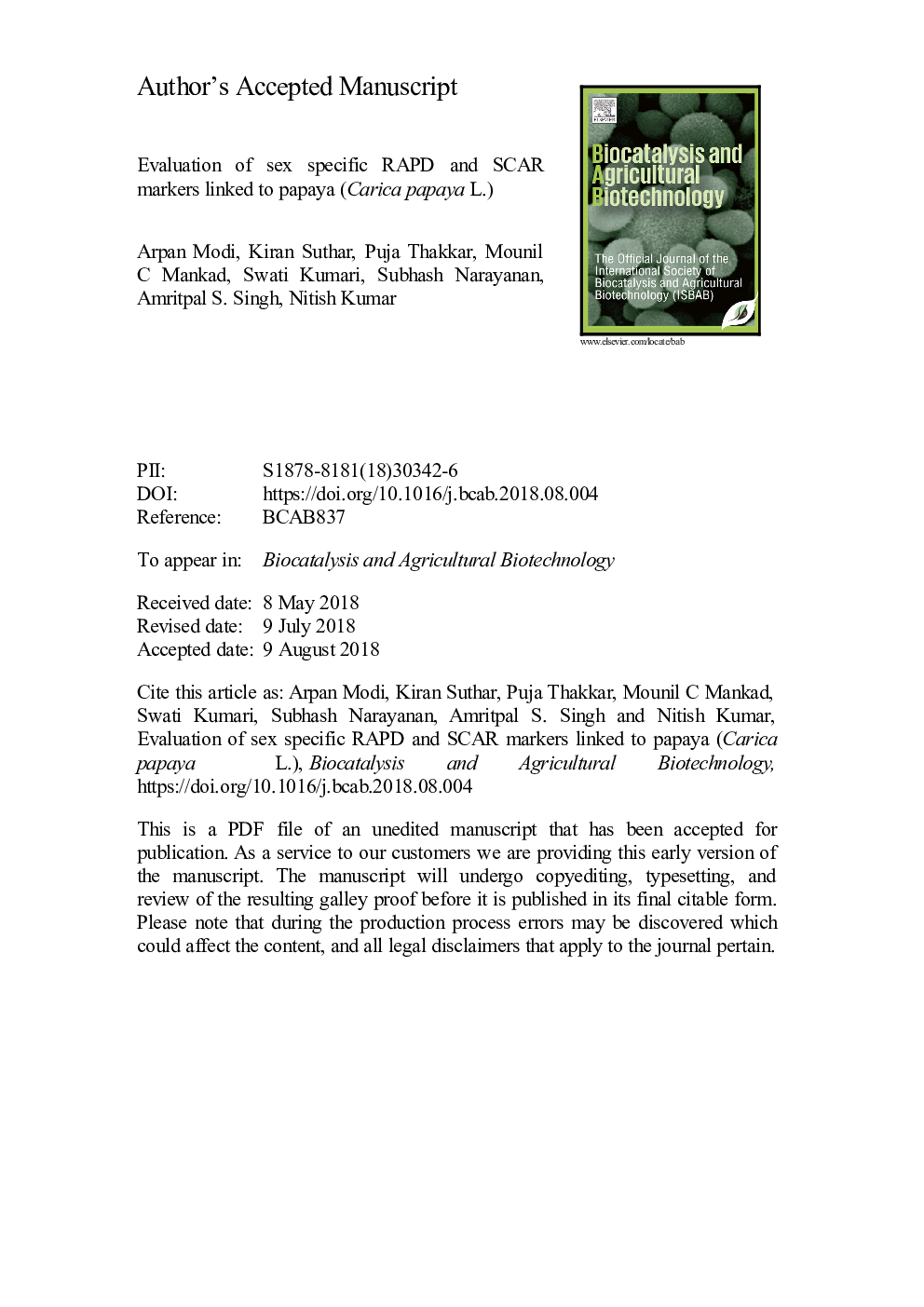| Article ID | Journal | Published Year | Pages | File Type |
|---|---|---|---|---|
| 9954351 | Biocatalysis and Agricultural Biotechnology | 2018 | 19 Pages |
Abstract
India is currently the world's largest producer of papaya (Carica papaya L.), producing fruits for both the domestic market and export. Morphological sex identification of papaya plants is not possible at seedling stage, it is commonly cultivated by planting 2-3 seedlings in a pit, followed by uprooting of the undesirable male plants after flowering which not only increases the cost of inputs (seeds & other basic inputs) and labour but also restricts efficient usage of land. This causes great losses to papaya producers and the identification of the sex of seedlings during the nursery stage would be an important advance. In our study random amplified polymorphic DNA (RAPD) and sequence characterized amplified region (SCAR) analysis were used to differentiate between the sexual forms of papaya. Analysis of sex types at seedling stage with two marker system also confirmed the same accuracy level and chances for the false negative result also minimized to zero. This method could reduce both the time and costs associated with breeding programs.
Related Topics
Life Sciences
Agricultural and Biological Sciences
Agricultural and Biological Sciences (General)
Authors
Arpan Modi, Kiran Suthar, Puja Thakkar, Mounil C. Mankad, Swati Kumari, Subhash Narayanan, Amritpal S. Singh, Nitish Kumar,
